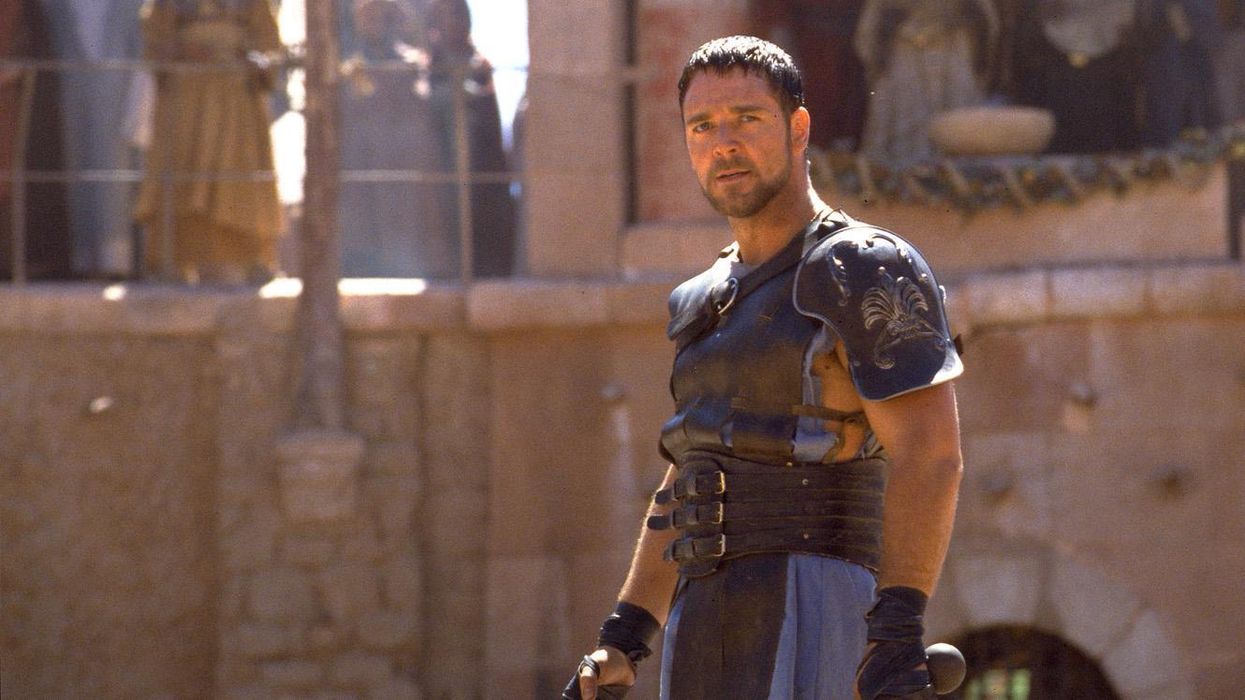News

Picture:
Gladiator (2000)/DreamWorks/Universal Pictures/Scott Free Productions
Donald Trump's decision to ban refugees from Syria, and several other Muslim countries, entering the US deserves a history lesson.
There are many reasons why people have criticised this move, but one of the most powerful lessons may actually come from ancient history.
An article on Quartz explains how the mistreatment of a migrant crisis caused the collapse of the Roman Empire. And it makes sobering reading when you compare it to what’s happening in the world right now.
The beginning of the fall of the Roman Empire is commonly attributed to 378, and an epic battle at Adrianople between Emperor Flavius Julius Valens Augustus and the Germanic people, Goths (who the Romans thought of as ‘barbarians’).
But how did the empire, which has so successfully conquered and managed their resources crumble so completely?
A refugee crisis
Two years before the events at Adrianople, the Goths, who lived in what is now Eastern Europe, were forced to leave their territory by the invading Huns (originally from the Caucasus and Central Asia).
Made up of two political groups - the Tervingi and the Greuthungi - and displaced by war, the Goths travelled across Europe. They were fleeing war similar to the way Syrians are today.
They ended up in Thrace, by the river Danube, where Emperor Valens sent a small army to greet them. Initially, they were seen as an asset by the Romans, and intended them to be assimilated by the empire.
But that attitude that the Goths were Barbarians eventually prevailed. The officials in charge of managing the immigrants were corrupt, and saw the Goths merely as something to exploit and profit off. Famine and sickness became companions of the Goth people, and Roman administrators “forced the starving Goths to trade their children [who would become slaves] for dogs to eat," according to historian W. Bradford Smith, Ph.D.
War
This equilibrium of existence broke when the Tervingi king, Fritigern, was held hostage during a Roman banquet – a tactic often used to control ‘barbarian’ groups.
Tensions spilled over, and though the Romans realised their error and released the king, it was too late – war had begun.
The two Goth groups, united by the treatment they had received from Rome, fought against an unprepared Roman army - and won.
Of course, it’s not the perfect analogy. Today’s migrant are not going to necessarily rise up any time soon. But historians have long argued that :
a beneficent and inclusive policy could have prevented the cascade of events that heralded the beginning of the end for the Roman Empire.
Or in other words, history suggests it’s better to treat refugees with humanity and compassion.
HT Quartz
More: These are the countries that host and send the most migrants
More: The UK is the 10th highest source of migrants for the rest of the world
Top 100
The Conversation (0)













